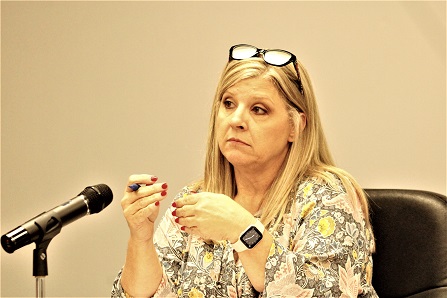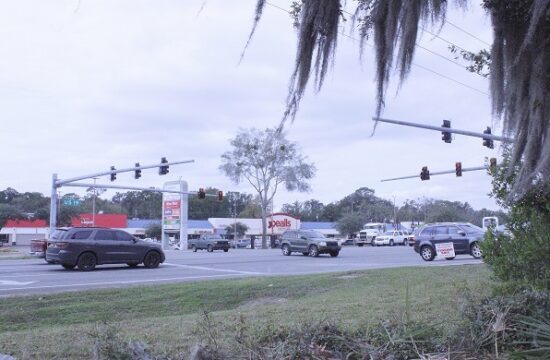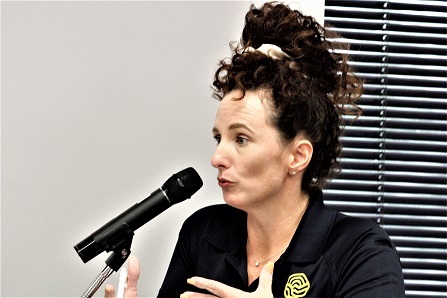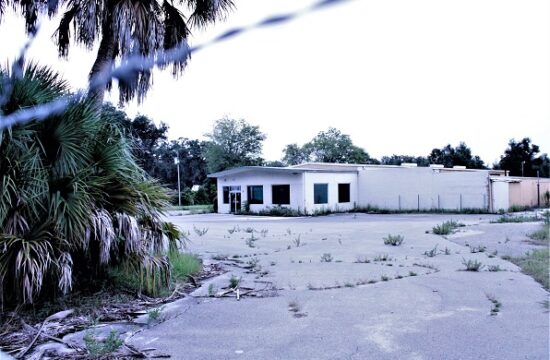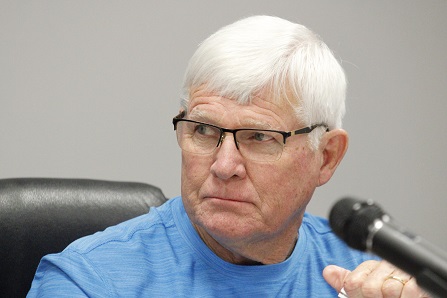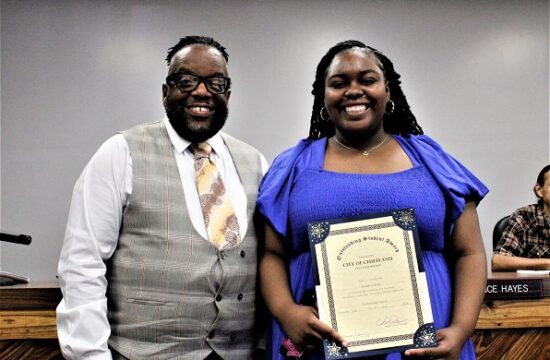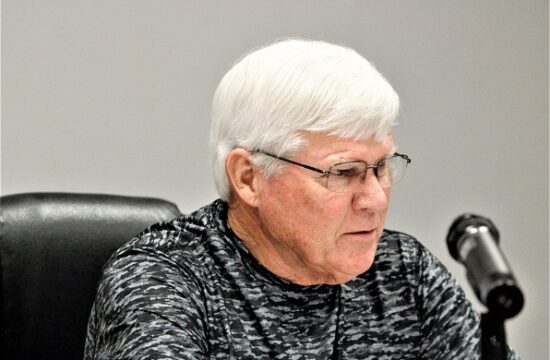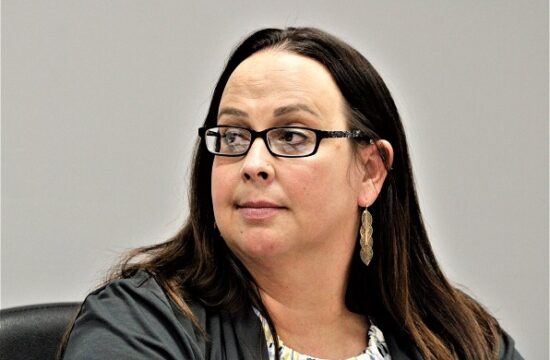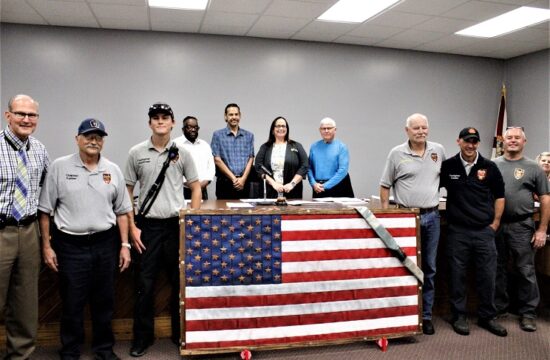By Terry Witt – Spotlight Senior Reporter
Chiefland City Commissioners Monday postponed making a decision on whether to adopt a resolution promising to work cooperatively with Cedar Key, Bronson, and Otter Creek on potential water transfers from communities that have good water to those that don’t.
Commissioners said they would wait until after a closed-door meeting of the three cities and the Suwannee River Water Management District on Friday in Bronson where the municipalities will begin to figure out what their options could be for water transfers.
Chiefland Commissioner Rollin Hudson expressed concerns about where this water transfer project might be headed in light of previous attempts by Otter Creek and Fanning Springs to take advantage of Chiefland’s water supplies. Both attempts ended in failure.
He said in one instance the city received an offer from one of the neighboring towns to buy the water at price that was cheaper than what Chiefland residents were paying for their water.
“That wasn’t right in my opinion,” Hudson said.
“It’s obvious it’s been tried two different times; are we going south or are we going north, that’s the issue,” Hudson added later.
Fanning Springs Mayor Trip Lancaster, who attended the meeting for another matter, said his city wasn’t interested in Chiefland water.
“As the mayor of Fanning Springs, we’re not looking for your water. We’re out of that at this point. At this point we have a location to put a new well,” Lancaster said.
Lancaster said Fanning Springs is a member of the Nature Coast Regional Water Authority along with Dixie and Gilchrist Counties and the City of Bell. All four government entities are working cooperatively on water issues.
Officials from Cedar Key and Otter Creek first approached Bronson Mayor Robert Partin with the idea of Bronson selling water to the sister cities situated along State Road 24. All three cities have signed the resolution, Chiefland has yet to approve promising to work cooperatively on water issues related to transfers.
Transfers are nothing new. The Nature Coast Regional Water Authority worked out an interlocal agreement allowing Fanning Springs to sell and transfer drinking water to Old Town, which had a problem with arsenic in its drinking water. The transfer of water has been occurring for more than a decade.
The resolution under consideration at Monday’s Chiefland City Commission meeting had been brought for discussion by Cedar Key Mayor Heath Davis and Bronson Mayor Robert Partin. Davis spoke to the commission about the value of the resolution from his perspective. He said the end goal was to develop a strategic plan for using water resources in a way that benefited all three cities and people living in rural Levy County.
“It’s simply making a plan to make sure we’re using our water the best way possible and possibly transferring to some areas throughout the county,” he said. “We wanted Chiefland to be part of that.”
As for Friday’s meeting in Bronson, Davis said it’s not open to the public, but he said Chiefland was welcome to send a representative. Mayor Chris Jones volunteered to attend the meeting to find out what was going to be discussed.
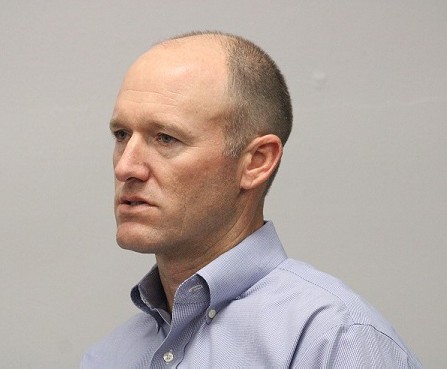
“That’s when we’ll start discussing the possibilities we do have and really start to understand the options we do have as we start thinking about transferring water to the different communities,” he said. “What we’ll be doing in this meeting is bringing our different issues. Each community has a different set of issues.”
Davis said Cedar Key staff has had a few discussions with Chiefland staff and found that the city has few issues with its water.
“Y’all may be the entity to provide solutions and there may be some opportunities. We don’t know yet,” he said.
Responding to Commissioner Norm Weaver’s concerns about global warming and sea-level rise, Davis said Cedar Key continues to drill new wells farther off the island. He said more citizens are also drilling wells for their homes between Cedar Key and Chiefland.
He said the Floridan Aquifer, the drinking water supply that consists of underground freshwater rivers passing through limestone canyons and narrow passageways, provides a barrier that blocks saltwater from continuing to move inland from the coast, but he said as more and more water is consumed inland, the threat of saltwater moving farther toward Chiefland is greater, at least in theory.
“You have a lot of users that are continuing to poke holes in that lens (the freshwater aquifer) that protects Chiefland theoretically from sea level rise,” Davis said. “That’s how we think it benefits you. It’s bad if we all keep drilling your way. It would be almost better if we stopped and we could come up with a water transfer plan that’s better for everybody.”
Among the many unanswered questions that might arise if Chiefland decided to transfer water to Cedar Key or Otter Creek, or both, is what would happen if the county experienced another drought in the future, as it did in the late 1990s and the first few years of 2000. Water levels in the aquifer began dropping and there was concern about the possibility of not being able to supply Chiefland residents with water if aquifer levels continued to lower. The same concerns might arise with city commissioners in a future drought. Would Chiefland be bound by an interlocal agreement to continue supplying water to other cities if doing so jeopardized Chiefland’s water security?
The same problem might face Bronson in a drought.
It’s unclear whether desalinization is an option for Cedar Key or if the process is too expensive or impractical or if it’s even been considered by the city. It hasn’t been discussed as a possibility, much less an option, in the public meetings where transfers were discussed in the past month or so. Most of Cedar Key’s waterfront is occupied by homes and businesses. But one thing is certain if sea-level rise is real, there is plenty of saltwater to be had off Cedar Key’s coast if desalinization would ever be considered as a possibility.
The discussion of water transfers began because neither Cedar Key nor Otter Creek can meet state drinking water standards with their current municipal wells. The two towns approached Partin about a water transfer. Bronson, Otter Creek, and Cedar Key have signed onto the resolution agreeing to work cooperatively on water supply and transfer issues.
—————————-
City of Chiefland Regular Meeting December 13, 2021; Posted December 15, 2021



